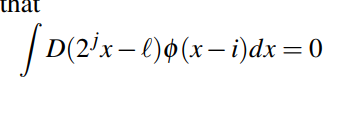I'm a student at a college with only two units of mathematics and I don't know if I'm asking in the right place so please bear with me.
I'm currently reading GPU Gems by nvidia and I have a question. It uses Sigma, as in summation, and integral a lot, but when look at the implementation of some of these algorithms, for example, Perlin noise, I can't find any sort of "summation" i.e.:
sum = 0
for i in range(x):
sum += f(i)
They just convert the Sigma's formula to code. As for integral, I was never very good at them so I have a very weak foundation in them --- Therefore I can't even close to imagine how to convert an integral from an algorithm to code. I know integrals are two things: the area beneath the curve, and the reverse of the derivative --- But how can you derive an algorithm?
For example, this is from the Worely noise algorithm. How do you translate it to code, like Python, or anything?
I'm not asking for code, just explanation. And I hope this is the right place. Thank you.

